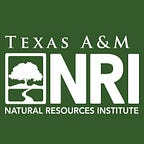SERPPAS Protects Military Lands, Defense Communities, and the Coast
The southeastern United States is home to a large military presence and contributes to national security through the important land, sea, and air space needed for realistic training and testing. The military’s influence in the Southeast extends beyond defense; it drives economic growth for many communities, manages considerable natural resources, and owns vast tracts of undeveloped land. The southeast includes several biodiversity hotspots and sustains a variety of unique and important ecosystems and industries, with the majority of land being privately owned. Because of this, numerous external factors affect the DoD mission, with issues like urban development and climate change presenting challenges that are at odds with the defense mission. To address these challenges, leaders from state environmental and natural resource agencies, DoD, and other federal agencies unified to promote a sustainable Southeast. The Southeast Regional Partnership for Planning and Sustainability (SERPPAS) formed in 2005 to foster better coordination among local, state, and federal stakeholders in the region.
Supported by DoD’s REPI Program, SERPPAS emphasizes relationship-building and collaborative leadership to advance decisions that protect military missions and ecosystems by minimizing encroachment. SERPPAS has contributed to many successful collaborations, including longleaf pine restoration, prescribed fire management, and species recovery, notably of the red-cockaded woodpecker (Leuconotopicus borealis) and gopher tortoise (Gopherus polyphemus).
In light of these successes, SERPPAS is turning its focus towards coastal ecosystem collaboration. Since 2019, SERPPAS has prioritized climate adaptation and coastal resilience to support installations, communities, and ecosystems, leading to multiple regional gatherings to address shared challenges through planning and project development. A recent 2023 summit focused on the six southeast Sentinel Landscapes, with discussion of ways to enhance climate resilience through DoD policies and collaborative funding.
Furthermore, SERPPAS has partnered with the Pew Charitable Trusts to launch the South Atlantic Salt Marsh Initiative (SASMI), focusing on the protection of salt marshes increasingly threatened by sea-level rise and development. These tidal ecosystems buffer shorelines, coastal communities, and military installations from extreme storm events while mitigating impacts from climate change, sea-level rise, and flooding. SASMI brings together diverse partners to restore, conserve, and protect salt marshes and their future migration corridors for the benefit of the people, communities, military installations, and wildlife that depend on them.
The SASMI Marsh Forward Plan established a goal to enhance the long-term viability of 1 million acres of salt marshes from North Carolina to northern Florida to ensure no overall loss of the benefits these wetlands provide. SASMI and the Marsh Forward Plan were developed through region-wide collaboration, inspired largely by the highly successful America’s Longleaf Restoration Initiative.
Much of SASMI’s conservation work complements the objectives of the Sentinel Landscapes partnership. The South Atlantic is home to three Sentinel Landscapes and more than a dozen coastal military installations, offering abundant opportunities for REPI partners to advance conservation opportunities in salt marsh migration corridors that maintain mission operations and ensure ecological resilience.
Written by Addie Thornton, SERPPAS Program Manager and Hannah Sodolak, NRI Administrative Coordinator
Originally published at https://nri.tamu.edu.
